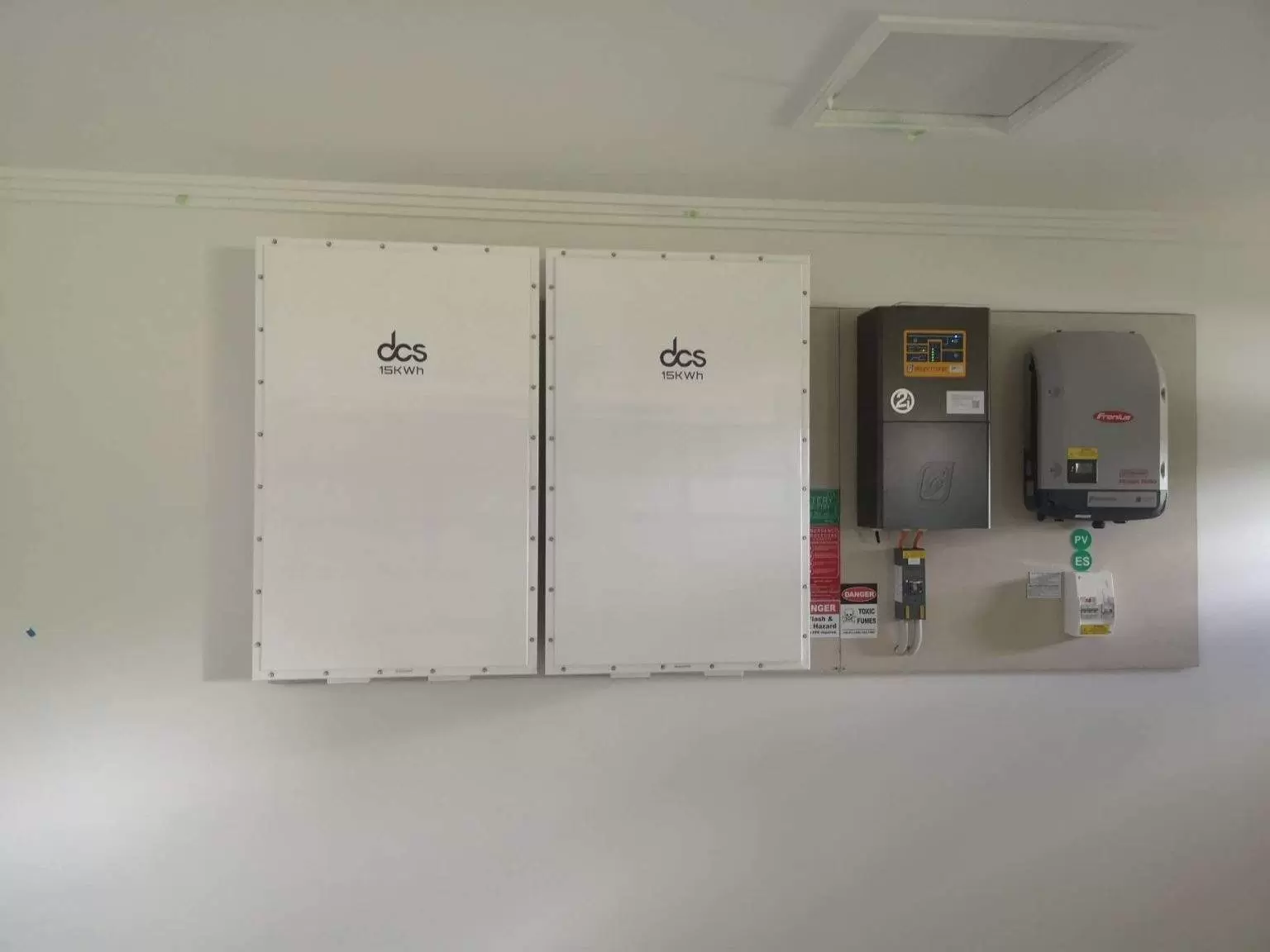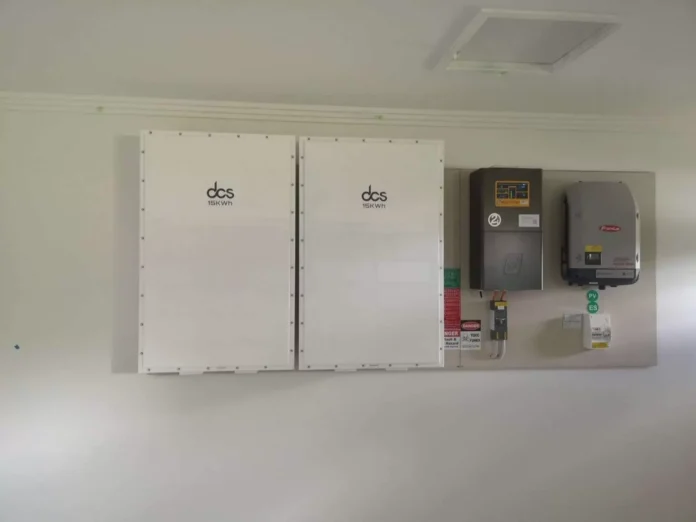As we become increasingly aware of the need to shift towards sustainable living, many homeowners are looking into renewable energy solutions that provide both autonomy and environmental benefits. Among these, off-grid solar systems, with their ability to operate independently of the traditional power grid, offer an attractive option for those seeking self-sufficiency. Central to the functionality of these systems are off grid solar batteries, which store the electricity generated by solar panels for use when the sun isn’t shining.
Understanding the Basics of Off-Grid Solar Batteries
Off-grid solar batteries play a pivotal role in ensuring the efficiency and reliability of standalone solar energy systems. These batteries are tasked with the critical function of storing the surplus energy generated by your solar panels throughout the day. This stored energy becomes your primary power source during nighttime or on cloudy days when solar generation is limited. The type of battery you choose directly influences your system’s capacity to meet your energy demands efficiently.
Key factors to consider when selecting a battery include its technology type, storage capacity, and expected lifespan. These elements determine not just how much energy can be stored, but also how effectively and for how long it can be deployed to power your home. As you delve into the realm of off-grid solar batteries, understanding these fundamental aspects is essential for tailoring your solar energy system to your specific living situation and ensuring a seamless supply of renewable energy to your residence.
Having this knowledge at your disposal, you can effectively navigate the myriad of battery options available in the market. Thus, enabling you to choose a battery that maximizes your solar system’s performance while catering to your unique power needs. In the following sections, we will dive deeper into the different types of solar batteries, their benefits, drawbacks, and how to select the best fit for your home’s energy demands. Understanding these nuances can drastically enhance your off-grid solar setup’s functionality and sustainability.
The Environmental Benefits of Going Off-Grid
Embracing off-grid solar systems with high-efficiency batteries signifies a monumental shift towards a more eco-friendly and responsible way of living. This transition plays a critical role in decreasing our reliance on fossil fuels, which are a major source of global greenhouse gas emissions contributing to climate change. By storing and utilizing solar energy, households significantly cut down on their environmental footprint, fostering a healthier planet.
Moreover, the reduction of electricity transmission losses, common in traditional grid systems, further underscores the ecological advantages of going off-grid. It’s a proactive approach to preserving natural resources and promoting biodiversity, as less land is required for energy production, reducing habitat disruption.
Additionally, this shift encourages a broader societal move towards sustainable energy sources, setting a positive example for communities and future generations. Transitioning to off-grid solar power is more than just an energy choice; it’s a commitment to a cleaner, more sustainable world.
 Achieving Energy Independence with Off-Grid Solar
Achieving Energy Independence with Off-Grid Solar
Achieving energy independence is a compelling reason for many homeowners to adopt off-grid solar batteries. This level of autonomy allows individuals to generate and use their own electricity, liberating them from the vulnerabilities associated with traditional power grids. These vulnerabilities can include unexpected power outages, which can be caused by natural disasters, infrastructure failures, or other unforeseen events.
Additionally, by being independent of the grid, homeowners can shield themselves from the fluctuations in utility prices, which can vary due to changes in market demand, regulatory changes, or increases in fuel prices. This independence not only provides a sense of security and peace of mind but also positions homeowners as pioneers in the movement towards a more decentralized and resilient energy future.
Through off-grid solar batteries, individuals can harness the power of the sun, converting it into a stable and reliable source of electricity that meets their daily needs without reliance on external sources. This step towards self-sufficiency is not just a personal achievement; it’s an investment in a future where energy is sustainable, secure, and in the hands of the people who use it.
The Economic Advantages of Off-Grid Solar Systems
Investing in an off-grid solar system, despite its upfront costs, unlocks substantial economic benefits over time. Homeowners who transition to these systems can sidestep monthly utility bills, a significant saving that accrues with each passing month. The nature of off-grid systems allows for tailored expansion, enabling homeowners to scale their setup in response to growing energy needs.
This flexibility means that the system can evolve without the necessity for a complete overhaul, making it a cost-effective solution in the long term. Moreover, the reliance on solar power reduces exposure to the volatility of energy markets, offering a buffer against the unpredictable swings in utility costs.
This economic predictability is a key advantage for households, providing a clearer picture of future expenses and contributing to more stable financial planning. The transition to off-grid solar is not just an environmental or lifestyle choice but a strategic economic move that yields dividends in energy savings and financial predictability.
Navigating the Choice of Battery Technologies
When embarking on the journey to select the perfect off-grid solar battery for your home, understanding the nuances of available battery technologies is paramount. The landscape is dominated by three main types: lead-acid, lithium-ion, and saltwater batteries. Lead-acid batteries, known for their affordability and widespread availability, have been a reliable choice for decades.
However, they often require more maintenance and have a shorter lifespan compared to other types. Lithium-ion batteries, on the other hand, are celebrated for their higher efficiency, longer life cycles, and minimal maintenance needs, making them a popular choice despite their higher initial cost. Saltwater batteries emerge as an environmentally friendly alternative, free from heavy metals and fully recyclable, though they might not yet offer the same performance levels as their counterparts.
Each technology presents a unique blend of benefits and compromises, ranging from cost-effectiveness and environmental impact to maintenance requirements and lifespan. Carefully weighing these aspects in the context of your specific energy needs, budget constraints, and sustainability goals will guide you to the battery technology best suited for your off-grid solar system.
System Sizing and Scalability Considerations
When determining the appropriate size for your off-grid solar battery system, a careful analysis of your household’s energy consumption patterns is essential. This involves not only assessing current usage but also projecting future energy needs, especially if you plan to increase your reliance on renewable sources or anticipate changes in household demand.
Misjudging the size of your system either by underestimating or overestimating can lead to inefficiencies, unnecessary expenses, or even the need for a costly system upgrade down the line. It’s equally important to factor in the scalability of the system. A scalable system can adapt to changing energy requirements, allowing for the addition of more batteries or solar panels without a complete system overhaul.
This adaptability is crucial for accommodating evolving energy needs, whether due to lifestyle changes, technological advancements, or the expansion of your home. Engaging with a renewable energy expert or utilizing energy consumption calculators can provide valuable guidance in this process, ensuring that your off-grid solar battery system is precisely tailored to meet your current and future energy demands effectively.
The Role of Off Grid Batteries for Solar
Off Grid Batteries for Solar serve as a crucial component in solar power systems. They not only provide stability in power supply but also serve as a reserve for power outages or during periods of low sunlight. These batteries are designed to capture and store energy produced by solar panels during the day, which can then be used at night or during peak demand times. Their size and capacity depend on your power needs, so understanding your energy consumption patterns is essential for choosing the right solution.
This ability to store and deploy energy on demand enhances the reliability and efficiency of solar power, transforming it from a variable resource to a dependable one. Without these batteries, the viability of off-grid solar systems would be severely compromised, as they would be unable to provide a continuous power supply.
Moreover, off-grid batteries enable homeowners to manage their energy consumption more effectively by monitoring stored energy levels and adjusting usage accordingly. This strategic use of stored power not only maximizes the utility of solar panels but also plays a pivotal role in achieving energy self-sufficiency, making off-grid living a practical reality for many.
Ensuring Long-Term Battery Performance
To safeguard the longevity and efficiency of your off-grid solar batteries, it’s critical to engage in proactive maintenance and routine system checks. Different battery types, from lead-acid to lithium-ion, come with distinct maintenance demands. For instance, lead-acid batteries may require regular water level checks and terminal cleaning to prevent corrosion, while lithium-ion units often need less hands-on upkeep but benefit from periodic software updates and health diagnostics.
Establishing a regular maintenance schedule is key to identifying potential issues early, preventing costly repairs or replacements down the line. Additionally, understanding and managing your energy usage to avoid over-discharging your batteries can significantly extend their life. Consider implementing solar charge controllers to help manage the power flowing into the battery bank, protecting against overcharging. Also, ensure the battery temperature stays within a safe range as extreme temperatures can deteriorate battery health and reduce lifespan.
Employing a smart battery management system (BMS) can automate much of this process, ensuring optimal charging and discharging cycles and protecting against conditions that may degrade battery performance over time. Taking these steps ensures that your off-grid solar batteries maintain peak performance, providing reliable and sustainable energy to your home for years to come.
FAQS
What Is The Average Lifespan Of Off Grid Solar Batteries?
While the lifespan varies by type, most off-grid solar batteries last between 5 to 15 years. Lithium-ion batteries often reach the upper end of this range, thanks to their advanced technology and efficient energy management.
How Do I Calculate The Size Of The Battery System I Need?
Calculating your system size involves assessing your daily energy usage and considering factors like peak usage times and future energy needs. Consulting with a renewable energy expert or using online energy consumption calculators can provide a more accurate estimate.
Can I Expand My Off-Grid Solar Battery System Later On?
Yes, many systems are designed for scalability. However, it’s crucial to plan for this possibility in the initial setup to ensure compatibility and cost-effectiveness of future expansions.
Conclusion
Embracing off grid solar batteries is more than an energy solution—it’s a commitment to a future where independence, economic benefits, and environmental sustainability are intertwined. By thoroughly evaluating battery technologies, ensuring the correct system size, and prioritizing ongoing maintenance, you can secure an energy system that stands the test of time. As we navigate towards a more renewable-powered world, the choice to go off-grid with solar batteries is not merely a personal gain but a collective step forward.
| Other Good Articles to Read |
| niche blogs connect |
| blogs 97 |
| Blog Stitution |
| blogs unplugged |
| blogs cotchrouge |
| blog signatr |
| blog sintonias |
| blog zilla |
| consumer forums |
| finance forums |
| g blogs |
| too blog |
| Related Business Listings |
| Contact Directory |
| Local Business Profiles |



